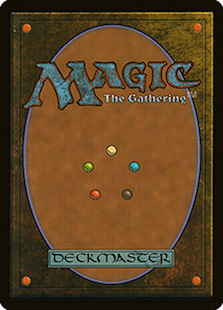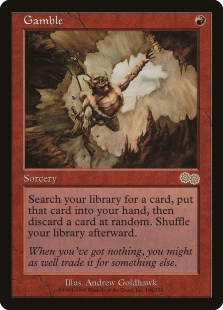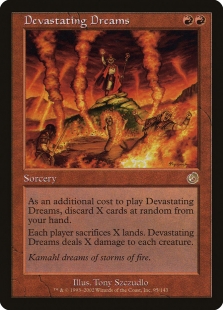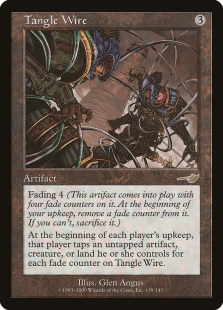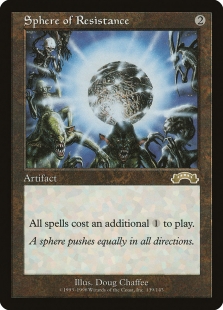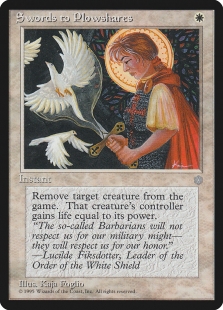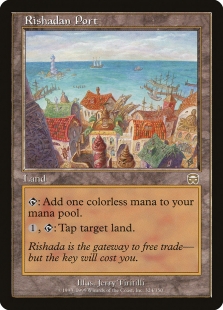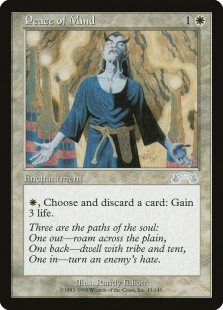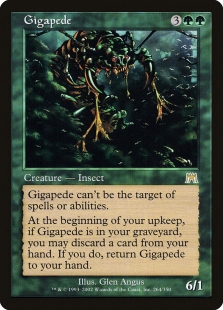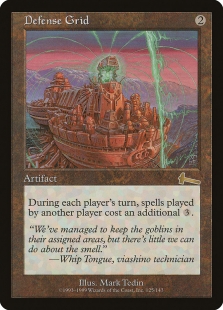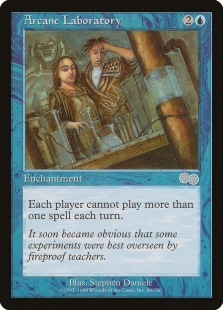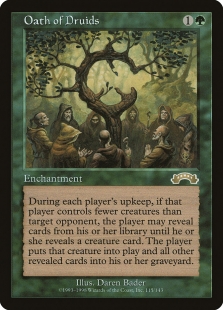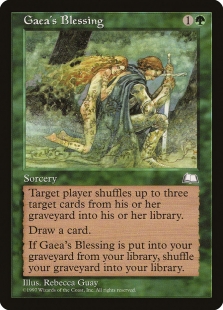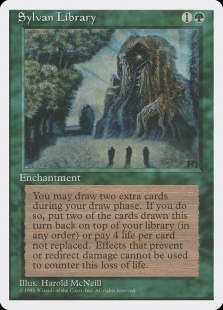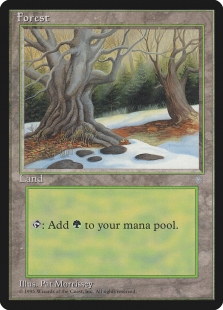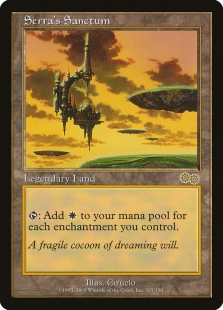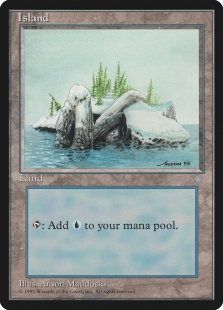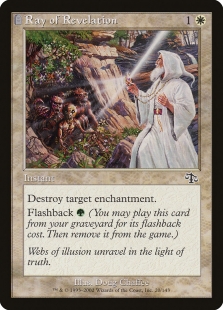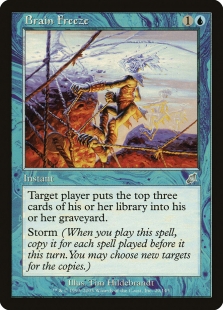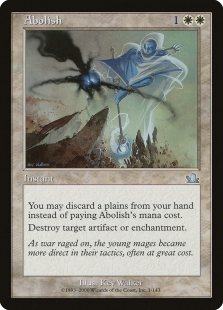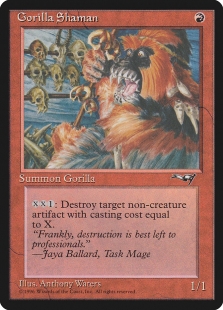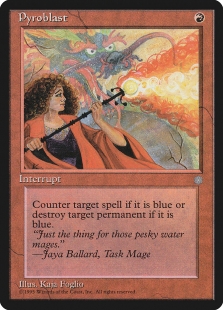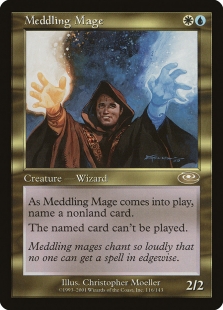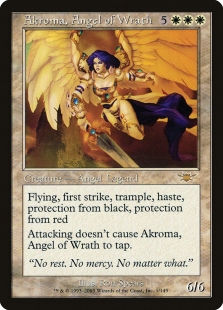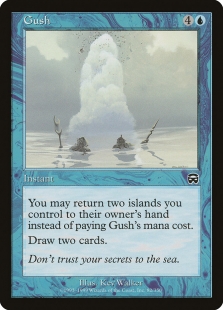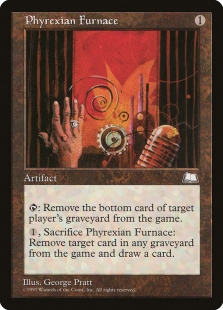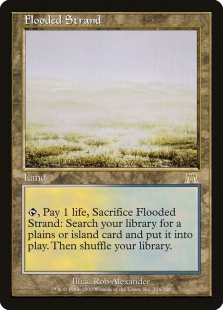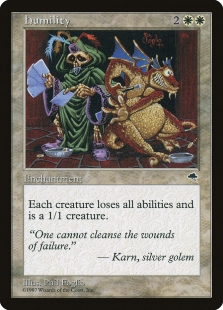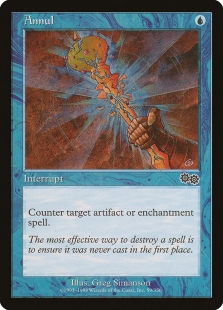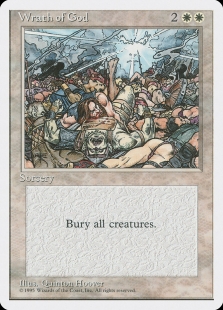The changes
- Land Tax is banned
The change is effective immediately (with the exception for ongoing leagues, at the organizer’s discretion).
Summary
Land Tax enables an overpowered draw engine which can be set up consistently at a minimal mana cost. Disrupting the engine in time can be difficult, and requires cards not available to all colours. The Land Tax engine can be exploited in different deck shells, and doesn’t appear to have a natural counter or weakness.


Motivation
When paired with Scroll Rack, Land Tax forms the core of a draw engine which effectively draws three extra cards per turn for only one colourless mana. The engine also provides one’s desired mix of lands and spells, and provides access to any colour of mana at the cost of including one basic land of that colour in the deck. The requirement of having fewer lands than the opponent is rather easy to fulfil: the full set of Undiscovered Paradise and Mox Diamond is standard to include, both of which also help to provide the deck with any colour of mana. Some builds also use Gush or Zuran Orb to turn on Land Tax. Enlightened Tutor ties it all together, as it fetches either Land Tax or Scroll Rack for only one white mana. The engine can thus be assembled and set up very consistently, with a minimal mana investment. The ”new” mulligan rule is beneficial for Land Tax as well, as cards mulliganed away can be recovered easily.

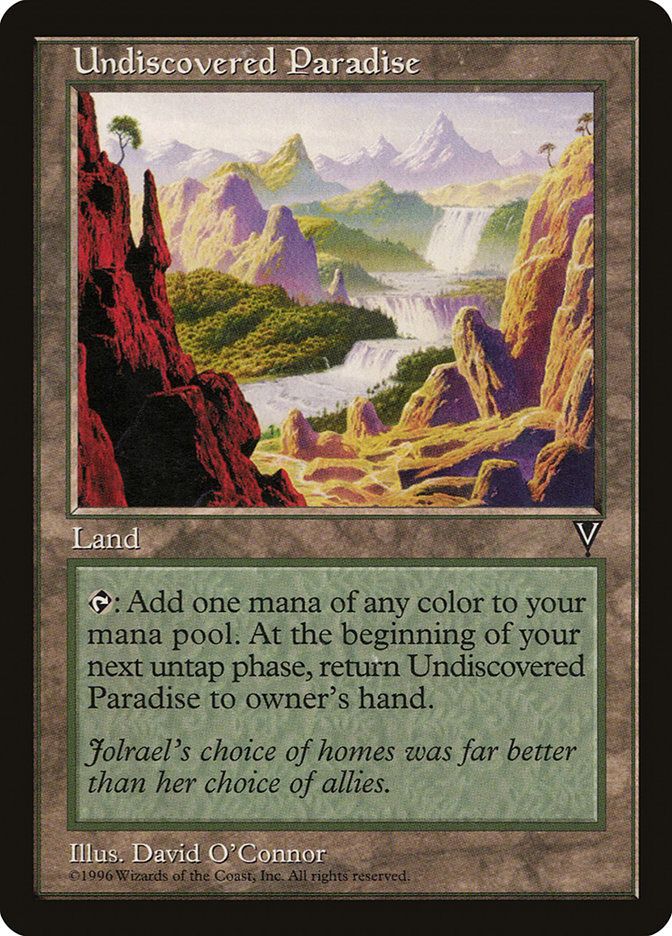

Land Tax (and Scroll Rack) can be removed by frequently played cards like Naturalize, Disenchant and Seal of Cleansing, but if the engine is not disrupted immediately, it’s an uphill race against the card advantage generated. The fact that disenchant effects typically cost two mana also means that the Land Tax player often can get in an activation when on the play (with Undiscovered Paradise or Mox Diamond), before it’s possible to destroy Land Tax. For comparison, this is the opposite situation to when you cast Disenchant on a Phyrexian Dreadnought cheated into play with Stifle or Vision Charm, as you’re up a card in this case. There are one-mana options like Demystify, Wax // Wane, Emerald Charm and Simplify, but these are quite narrow even for sideboard cards, and anyway only available to white and green.

Wane—a narrow card in both respects
Land Tax was on the original ban list, but released for evaluation in 2018. I argued then that it wasn’t obvious that the engine was stronger than other ways to generate card advantage such as Standstill. I imagined that the deck would be powerful in a particular control archetype, with weaknesses similar to other control decks, and that there were enough tools in the format to deal with it. In hindsight, I think all of these points have been proven wrong.
At this point, the Tax-Rack engine and its support cards have been used in several different shells, e.g. prison, control and aggro-control. There are some constraints on deck building, e.g. including a minimum amount of basic lands and white mana, and including the above mentioned set of support cards. Given that core, the deck can easily play any colour and a wide array of strategies like discard, counterspells or mana denial. The engine is thus not reliant on a specific deck, and is not countered by any particular card or strategy either.
Other points to consider…
Raw power level aside, Land Tax has also been criticized on the following points:
- All of the shuffling, searching, selecting and ordering with Land Tax and Scroll Rack takes too much of time and is boring for the other player (reminiscent of Sensei’s Divining Top)
- The passive nature and scarce amount of win-cons of many Land Tax decks, in combination with the previous point, leads to long games, draws and may prolong tournament rounds
- It leads to passive and boring games in general, as it’s often the correct strategy for the Land Tax player’s opponent to withhold land drops and just sit around for several turns
All of these points are valid, and contribute to the overall picture. At the same time, I don’t think they would be enough to warrant a ban unless the power level issue wasn’t there. Fun is subjective, and cards like Stasis can also lead to drawn out games which are particularly boring for the other player. Taking advantage of Stasis is not that easy though, and there’s a good chance that the Stasis player’s opponent wins after several turns under a soft lock. Hence, the Stasis deck—because it just goes into one deck—isn’t considered to be one of the top decks of the format.
… and other cards
Land Tax is enabled by a critical mass of support cards, mentioned above. Banning any one (or a combination) of those could of course make Land Tax weaker. The support cards are fairer in isolation though, and have key roles in certain archetypes, e.g. Scroll Rack in Oath of Druids decks and Mox Diamond in Gro-a-Tog. The only serious candidate in my view is Enlightened Tutor, as it’s crucial for consistency and also resilience, as it enables silver bullets (of practically any colour, remember) for any matchup. There would also be some logic to that choice, as some other members of the tutor family are banned. Enlightened Tutor has proved to be fair in a lot of other decks, however, and in the end, Land Tax just appears to be the most logical choice (I’m sorry, Terra-Geddon).
Evolution and impact of Land Tax decks
Land Tax was unbanned in 2018. In the same year, Erik Sundberg played his brainchild deck Pink Prison to a second place in the first Euro Champs tournament (read his report here). Erik used Winter Orb, Tangle Wire and Devastating Dreams to ensure that he had all the fun. The wincon? A single Gigapede. The deck didn’t exactly become popular, but it put up some solid results in the online monthlies.
For a rather long time, Land Tax didn’t see that much play, apart from the occasional GW Terra-Geddon deck. We have to fast forward a few years until the engine popped up again in more controllish ”Parfait” style decks. Raphaël Caron played Parfait versions with Oath of Druids early on. Rich Shay developed the deck, and piloted it to a second place at the North American Champs at Lobstercon last year.
Marc Eric Vogt refined Oath Parfait further, and went on to win the Euro Champs the same year, as well as the day two event. And then some more as he took down a couple of sizeable tournaments in Italy and the Czech Republic with the same deck. Or not quite the same, as the deck morphed from black to blue, adding Gush and counterspells. Lanny Huang recently finished third with blue Parfait at this year’s North American Champs, by the way the largest Premodern tournament so far, with 186 players.
Sam Black has contributed to and put up results with Land Tax as well, ditching Oath of Druids entirely, and even marrying the Tax-Rack engine with the Stifle–Phyrexian Dreadnought combo. He shared his insights about his decks, and Land Tax in general, in this article.
Land Tax decks have put up strong results despite being played in rather small numbers in any given tournament. Land Tax decks have not distorted or dominated the meta-game, but this is not the only criterion to judge a deck (or a card), since there are many factors behind people’s deck choice in a format like Premodern. Not everyone seeks to maximize win chances and play their pet deck no matter what. For some people, the deck may be too pricey. Even for those who own a playset of Mox Diamond, the particular play style of Land Tax decks may not be for them. Finally, some people may recognize its power, but refrain from it from a ”gentlemans” perspective. I believe that the technology of Land Tax decks has caught up, to the point where some more competitively-minded people feel that they either need to make significant concessions in order to beat the deck, or play a Land Tax deck themselves to play at the same power level. Players at the more casual end may in turn feel disengaged when playing against Land Tax decks. The fact that the shell around the engine seems almost secondary is a red flag, and I believe that the format will be healthier without Land Tax.

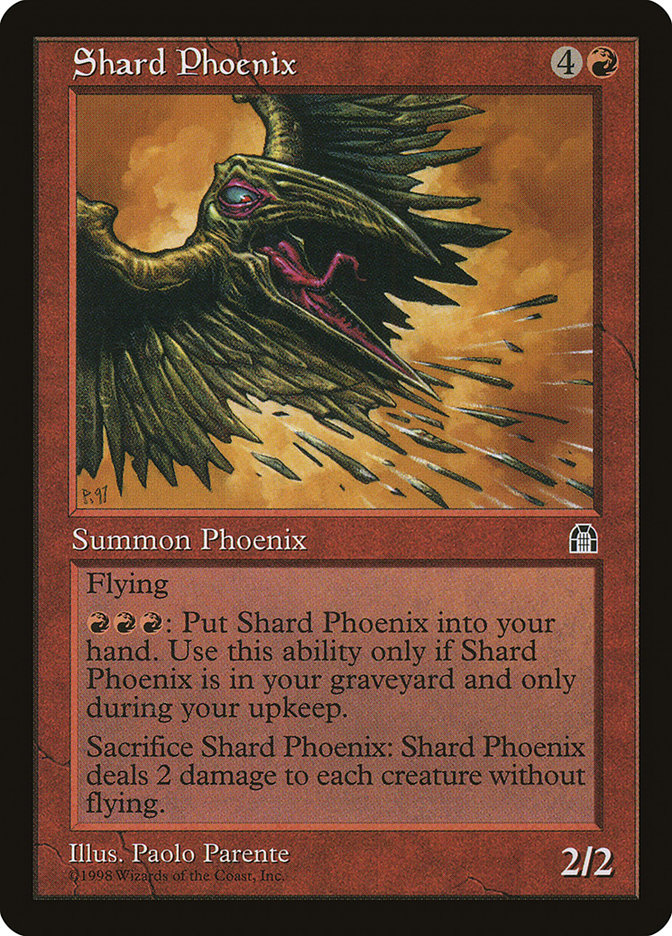
The evolution of Land Tax decks in Premodern certainly reflects some great deck building skills, as well as the collective and ongoing effort put in by players in both real life and online play. It has been interesting, and I think useful, to explore the boundaries of the format. And to be honest, it has been a bit heart-warming for me to see cards like Zur’s Weirding and Shard Phoenix kick ass again. These decks will be remembered in the Premodern hall of fame.
Finally, I want to thank everyone who engaged in the ban list discussions and provided useful feedback.
See you in the comments!
Martin
